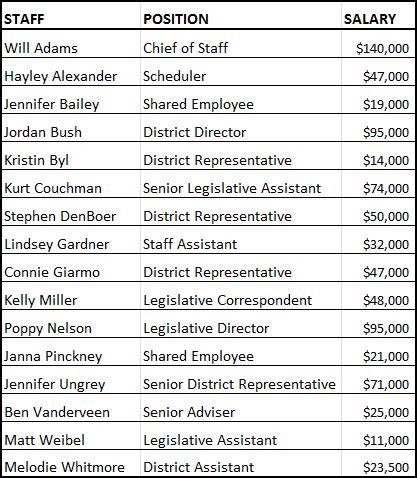Astounding! 57,000 Border Kids and Congress Goes on Vacation
Striving to become the worst Congress ever Aug 6 2014Frantic to head home for August, the House at the last minute passed two stopgap immigration bills after the extraordinary spectacle of Senator Ted Cruz (R-Tx) crossing to the other side of the Capitol to rally a Tea Party uprising against House Speaker John Boehner, who was desperate to pass something.
But the bills, one authorizing $659 million were just window-dressing, a pretense of doing that something, because the Senate had scattered to the fifty states for its own recess.
So nothing went forward and our entire Congress, leaving what to do about more than 57,000 Central American youths unattended to, skipped town for five weeks of what we call vacation but they call their “district work period”. Seriously. That’s what they call it.
It was Harry Truman who came up with the “do nothing Congress” label that we use today. But the Congress of his day passed 906 bills; today’s 113th Congress has passed only 142 so far this year. It set a record last year by passing the fewest bills in its modern history. But it is now well along this year to break last year’s record of doing nothing (see chart below) with the least productive year since someone began counting in the late 1940s.
And it’s worth mentioning that of the 142 many are mere expressions of sentiment that evanesce without a trace. To avoid the controversies that attend dealing with the nation's problems, congressional members prefer the safety of passing innocuous resolutions — such as declaring “National Aphasia Awareness Month” (You weren’t aware?), commemoration of the centennial of Webster University, or honoring George and Barbara Bush on their birthdays.
Bloomberg/Business Week produced this remarkable chart  (too big for this page) that's worth spending some time with which you can access by clicking its reduced image. It shows how many bills Congress actually did churn out in 2013 — about what, we are left to wonder — but how few come up for a vote and are passed. Almost all of Congress’ work product goes nowhere. But you can bet that members head home to boast of those bills to nowhere, leaving folks in their district to assume they went somewhere. Perhaps that was their sole purpose.
(too big for this page) that's worth spending some time with which you can access by clicking its reduced image. It shows how many bills Congress actually did churn out in 2013 — about what, we are left to wonder — but how few come up for a vote and are passed. Almost all of Congress’ work product goes nowhere. But you can bet that members head home to boast of those bills to nowhere, leaving folks in their district to assume they went somewhere. Perhaps that was their sole purpose.
To give credit where due, Congress did arrive at a bipartisan $17 billion veterans bill that would speed access to hospital care outside VA hospitals and give the VA secretary the power to fire venal and corrupt Veterans Administration executives. But consider what they didn't do.
Congress's not-to-do list
The failure to deal with immigration is nowhere near all that Congress failed to do. We here offer a list of some of the avoided major items:
![]() Congress ignored the public by failing to increase the minimum wage, favored by 71% per CNNMoney's poll and 73% at Pew Research. You could say that Congress allowed the minimum wage to be reduced. Inflation, however low, has nevertheless chewed away at the buying power of the $7.25 an hour floor set five years ago.
Congress ignored the public by failing to increase the minimum wage, favored by 71% per CNNMoney's poll and 73% at Pew Research. You could say that Congress allowed the minimum wage to be reduced. Inflation, however low, has nevertheless chewed away at the buying power of the $7.25 an hour floor set five years ago.
![]() Nothing further was attempted on gun control after a filibuster a year ago April defeated a bill in the Senate to expand background checks, a measure that over 90% of Americans wanted then and now, as seen in these polls conducted as recently as this June.
In the meantime, 74 school shootings since Newtown, Connecticut, and 82 shot in Chicago over the July 4th weekend.
Nothing further was attempted on gun control after a filibuster a year ago April defeated a bill in the Senate to expand background checks, a measure that over 90% of Americans wanted then and now, as seen in these polls conducted as recently as this June.
In the meantime, 74 school shootings since Newtown, Connecticut, and 82 shot in Chicago over the July 4th weekend.
![]() Congress fell short of reducing student loan interest rates, penalizing millions who sought college educations. They are left still paying 6.8% interest whereas banks can borrow from the government at near 0%.
Congress fell short of reducing student loan interest rates, penalizing millions who sought college educations. They are left still paying 6.8% interest whereas banks can borrow from the government at near 0%.
![]() The U.S. Postal Service posted a loss of $5 billion again because Congress has failed for years to relax its choke hold.
The U.S. Postal Service posted a loss of $5 billion again because Congress has failed for years to relax its choke hold.
![]() The five-year transportation bill expires at the end of September with Congress frozen in inaction. The Congressional Budget Office calculates that the balance in the trust fund's highway account will fall to $2 billion by then, and its mass-transit account to only $1 billion. There are 700,000 jobs at stake.
The five-year transportation bill expires at the end of September with Congress frozen in inaction. The Congressional Budget Office calculates that the balance in the trust fund's highway account will fall to $2 billion by then, and its mass-transit account to only $1 billion. There are 700,000 jobs at stake.

The chart dramatically shows how unproductive Congress has become.The Transportation Department grades U.S. infrastructure with a “D” (there are some 63,000 bridges that are no longer structurally sound) but Congress refuses to spend, citing annual deficits and the $17.6 trillion national debt. “I haven’t heard a good reason why they haven’t acted,” chides Obama. “It’s not like they’ve been busy with other stuff”.
What's needed to pass a bill, says Sen. Dick Durbin (D-Il), is an end the pesky moratorium on earmarks agreed to after the embarrassing $223 million slab of pork that was voted for Alaska’s “bridge to nowhere”. Durbin says earmarks are the “glue” that holds the transportation bill together. They “create a much better and more positive feeling", Durbin told reporters. “The ‘positive feeling’ is the joy of spending other people's money”, said retiring Sen. Tom Coburn (R-Ok) in a scornful Wall Street Journal op-ed.
![]() The new U.S. fiscal year begins in less than three months with no movement on budgets — and Congress vacations for most of August and into September. Of course, the House and Senate haven’t passed the dozen appropriation bills needed to run the government in time for the October 1 deadline in almost two decades. Instead we will again run on the fumes of “continuing resolutions” — if even those can be agreed to. Otherwise, another government shutdown looms.
The new U.S. fiscal year begins in less than three months with no movement on budgets — and Congress vacations for most of August and into September. Of course, the House and Senate haven’t passed the dozen appropriation bills needed to run the government in time for the October 1 deadline in almost two decades. Instead we will again run on the fumes of “continuing resolutions” — if even those can be agreed to. Otherwise, another government shutdown looms.
![]() The need for tax reform is dire. Seemingly everyone, the president included, believes that the corporate profit tax rate, at 35% the world’s highest, must be lowered if the U.S. is to compete. Representative Dave Camp’s (R-Mi) committee had worked for months on a comprehensive reform proposal that was presented early this year. Too boring for House Speaker John Boehner (“Blah, blah, blah” was his reaction). The committee’s work was ignored and Camp is quitting the House. So are many others leaving Congress — members of what congressional scholar Norman Ornstein calls the “problem solving caucus”. They find continuance futile and will leave behind a body of increasingly uncompromising ideologues.
The need for tax reform is dire. Seemingly everyone, the president included, believes that the corporate profit tax rate, at 35% the world’s highest, must be lowered if the U.S. is to compete. Representative Dave Camp’s (R-Mi) committee had worked for months on a comprehensive reform proposal that was presented early this year. Too boring for House Speaker John Boehner (“Blah, blah, blah” was his reaction). The committee’s work was ignored and Camp is quitting the House. So are many others leaving Congress — members of what congressional scholar Norman Ornstein calls the “problem solving caucus”. They find continuance futile and will leave behind a body of increasingly uncompromising ideologues.
After years of hearing pledges from Congress to cut corporate tax rates, Boehner’s message was heard loud and clear. The consequence of Congress doing nothing is that fed up corporations are fleeing the U.S. using a maneuver called “inversion”. By merging with or acquiring foreign companies, they contrive to move their tax domicile to countries where profits will be taxed at much lower rates. The U.S. Treasury will be taking serious hits as this maneuver is becoming increasingly popular while Congress slumbers.
As for doing nothing on immigration, in the midst of World Cup Luis Gutiérrez (D-Ill) stood on the House floor and gave fellow members a red card for doing nothing. “You’re done…leave the field”.
But Congress members are not entirely inactive. With 5th Amendment evasions and vanished e-mail, the I.R.S. scandal keeps them preoccupied and half the members of the House asked to join the committee investigating Benghazi for — where are we? — the eighth time? As for Congress members left out of those proceedings? We hear they fill their time with an increase in free travel junkets paid for by corporate interests [link]. The House ethics committee attempted to hide that by eliminating the requirement that members report such swag, but they were caught in the act and had to reinstate it.
Small wonder then that public approval of Congress dropped to 7% in a June Gallup poll.
These people cost taxpayers a mountain of money. Uniquely, Michigan Republican Congressman Justin Amish thinks we should know what he 
Staff costs as reportedon Congressman
Justin Amish's website.
costs us. With remarkable candor (considering Congress' more prevalent view that such things are none of our business) his website lays out his staff's salary in this table, and the accompanying test spells out his own paycheck and the lavish benefits he and his employees enjoy. Multiply that times 434 other representatives, many of whom probably cost far more (Amish is a newcomer). As for the regal Senate, who knows what they cost us.
Please subscribe if you haven't, or post a comment below about this article, or
click here to go to our front page.

